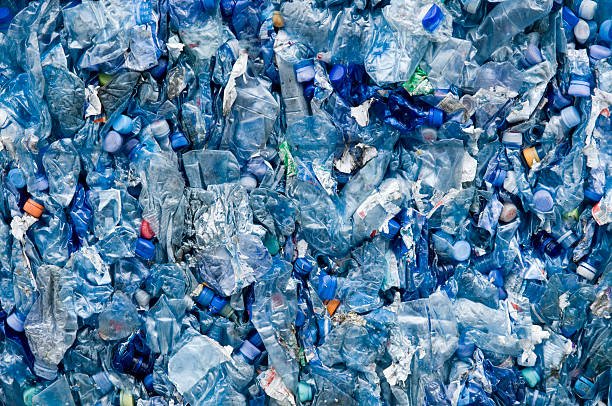

· By Mark Majkrzak
Clearing the Path to a Plastic-Free World
Why Removing Plastics from Our Environment Matters:
Plastic, once a marvel of modern innovation, has become a double-edged sword in our world. Its versatility has transformed industries and improved our lives, but plastic waste in fact, has had an undeniably negative effect on our environment. In this blog, we'll dive deep into the issue of removing plastics from our environment and explore the many reasons why this issue is so important.
The Plastics Predicament
We use and discard without a second thought. Plastics have become an everyday aspect of our lives. However, this convenience comes at a significant cost – a mounting environmental crisis that threatens ecosystems, wildlife, and human health.
Environmental Devastation
Plastic pollution is a massive issue that has infiltrated our lands, rivers, oceans, and even the air we breathe. These materials are not biodegradable, this means that they persist in our environment for centuries, breaking down into smaller and smaller particles known as microplastics. These microplastics infiltrate soil, water bodies, our bodies and even reach remote regions like the Arctic, affecting the most fragile of ecosystems.
Plastic waste in natural habitats disrupts the balance of these ecosystems and poses a direct threat to wildlife. Animals often mistake plastic debris for food, leading to, in many cases, a slow and painful death. The accumulation of plastics in our waters contributes to habitat destruction and pollution, thus impacting numerous aquatic species.
With our oceans covering more than 70% of the Earth's surface, they are taking the brunt of our plastic addiction head on. It's estimated that over 8 million metric tons of plastic enter the oceans annually! The Great Pacific Garbage Patch, a floating mass of plastic waste in the North Pacific Ocean, is a true testament to the magnitude of the problem.
Marine life is suffering immensely due to plastic pollution. Countless seabirds, marine mammals, and fish are affected by entanglement in plastic debris and ingestion of plastic particles. The toxins present in plastics leach into the marine environment, further compromising the health of these ecosystems.
Threat to Human Health
The consequences of plastic pollution doesn’t stop at the water's edge, they affect humans as well. The consumption of seafood contaminated with microplastics means that even the most remote corners of the planet are not exempt from plastic's reach. Studies have found microplastics in drinking water, air, and food, raising concerns about their potential impact on human health.
Research into the long-term health effects of ingesting microplastics is ongoing, but the presence of these minuscule particles in our systems is undeniably scary. There is growing evidence that these microplastics can leach harmful chemicals, disrupting hormonal balance, and causing inflammation when ingested leading to several (many severe) health problems.
Why Removing Plastic Matters
Our world is somewhat of an orchestra of interconnected species and environments. The intrusion of plastics disrupts this harmony, leading to devastating consequences. Removing plastics from our environment is essential to saving our ecosystems, preserve biodiversity, and restore the delicate balance that sustains life on Earth. The production and disposal of plastics are closely tied to the fossil fuel industry, contributing to massive greenhouse gas emissions. By removing plastics from our environment, we can reduce our carbon footprint and take a step toward mitigating climate change. By addressing plastic pollution, we can help protect natural carbon fields like our forests and oceans, which play a vital role in producing carbon dioxide.
Our economy
Removing plastics from the environment is easily linked to the concept of a circular economy. Rather than using plastics once and discarding them, a circular economy promotes recycling, reusing, and reducing plastic consumption. By closing the loop on plastic production and disposal, we can significantly decrease the amount of plastic waste entering our environment.
Human Health and Well-being
The connection between plastic pollution and human health is an urgent concern. Removing plastics from our environment reduces the risk of exposure to harmful chemicals and microplastics. It also ensures cleaner air, water and food sources, the essentials for the well-being of current and future generations.
How do We Make a Difference?
Now that we understand the importance of removing plastics from our environment, it's crucial to explore how each of us can contribute to this vital mission.
The first step is to reduce our own plastic consumption. This can be achieved by opting for reusable items, avoiding single-use plastics, and making more informed choices when shopping. Every small change in our daily habits can add up to significant reductions in plastic waste.
Ensure that you recycle correctly, educate yourself in your local recycling guidelines. Proper disposal of plastics prevents them from ending up in the environment. Encourage businesses and manufacturers to use recyclable materials and support initiatives that promote responsible plastic disposal.
Participate in cleanup efforts Join and/or organize community cleanup events in your area. Removing plastics and other litter from natural spaces not only helps the environment but also raises awareness about the issue.
Push for policies and regulations that address plastic pollution. Support bans on single-use plastics, advocate for extended producer responsibility, and encourage businesses to adopt sustainable practices. Spread the word about the importance of removing plastics from our environment. Share information and resources with your friends, family, and social networks to build a collective commitment to this cause.
Conclusion
The imperative of removing plastics from our environment cannot be overstated. It's a challenge that transcends borders and requires a global effort. By taking steps in our own lives and advocating for change, we can contribute to a cleaner, healthier planet for ourselves and future generations. Together, we can clear the path to a plastic-free world, where our environment can thrive once again.
